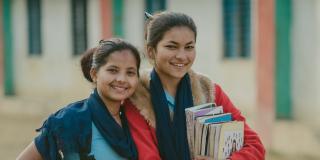
More than 95% of children in Nepal are now enrolled in primary school, compared to 80% ten years ago. But girls still face many barriers to completing their education, especially as they approach adolescence.
VSO is working alongside the Ministry of Education in Nepal to help increase the number of girls in full-time education through the Sisters for Sisters project, which pairs ‘Big Sisters’ with girls in their community who are at risk of dropping out of school.
These women and girls are all working towards a brighter future for girls’ education in Nepal.
Inspiring future teachers
Rama volunteers as a Big Sister on VSO’s Sisters for Sisters Education project in Surkhet, Nepal. She works with up to four girls at a time, helping them to get the education they deserve. Her work includes outreach in local communities, helping families to understand the importance of sending girls to school, supporting her ‘Little Sisters’ with their studies and helping to promote gender equality in schools.
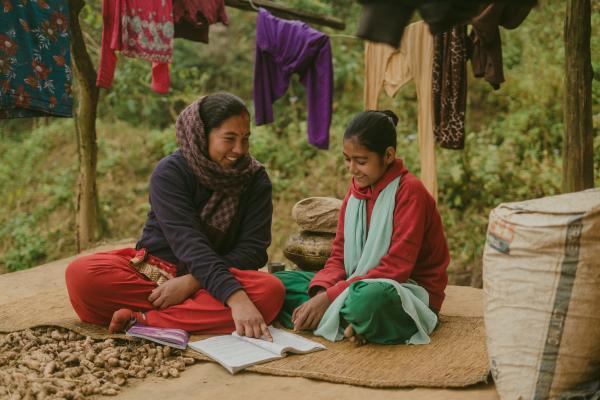
“Rama talked to my parents to convince them to send me to school rather than stay at home to do household chores. She used to visit four times a week and helped me do my homework.”
“I used to feel bad about my low performance in school. But since working with Rama, I have learned that I need to speak up and be active. My Big Sister has inspired me to study hard and take part in extra activities. Now, I’m so happy to be in school and one day I hope to become a teacher so I can help other girls in my community."
Keeping girls in school every day of the month
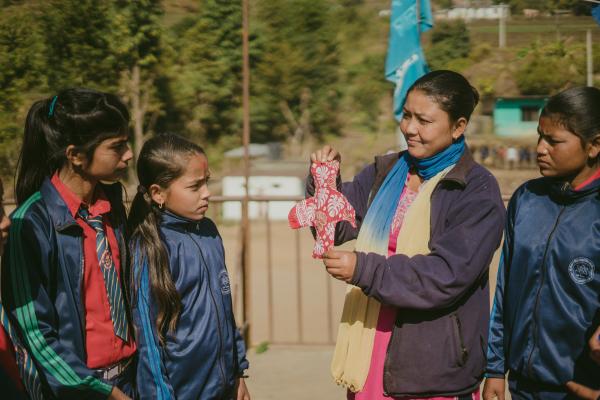
One of the major barriers to girls’ education in Nepal is the taboo surrounding menstruation. Many girls would be forced to miss school completely during their period, missing out on their lessons because they didn’t have access to sanitary products.
Big Sisters have been given training to teach girls how to make reusable sanitary pads. Nirmala (pictured below) was taught by her big sister and sharing this knowledge with her friends means that her class mates no longer have to skip classes while menstruating.
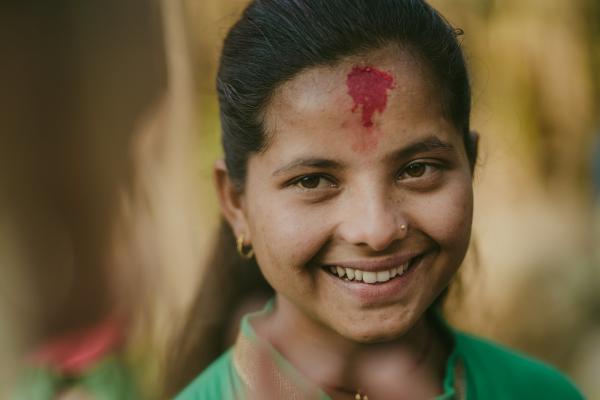
“I’m not able to use the disposable pads that are available in the market, the market is very far away and the pads are expensive."
“I made and distributed some extra pads for my friends who missed the training using what I learned. I felt like if they missed out, then they might miss their classes. So I thought if I bring them pads, it can help them go to school. There are very few girls who miss school in this community now.”
An award-winning love for learning
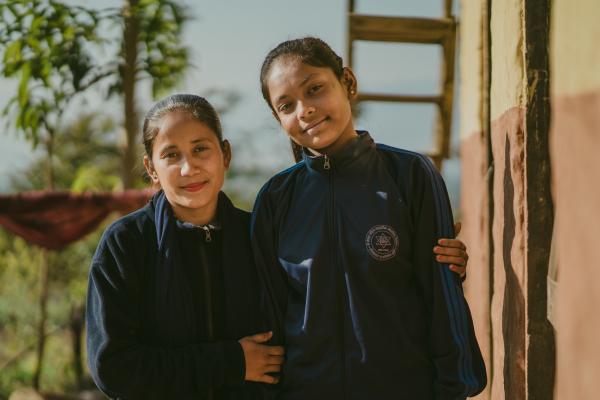
Laxmi has been supporting Sonu for more than four years now, and in that time Sonu has made incredible progress in both her studies and her confidence and has gone on to become a role model for girl’s rights in her community.
Before the project, Sonu was reluctant to attend school, going just one or two days a month, and had fallen badly behind. It took time, but Laxmi eventually won Sonu's trust and discovered that she lacked the confidence to ask for help in class, she was afraid of being teased.
Laxmi helped Sonu keep up with her homework and enrolled her in learning support classes to help her catch up. Laxmi also encouraged Sonu to take part in sports activities and public speaking competitions arranged through the Sisters for Sisters project.
As Sonu’s confidence grew, so did her love for education. Now, Sonu attends school every day and wants to share her love for learning with others. At just 14 years old, Sonu convinced her family to let her use a room in their modest house to start a community library.
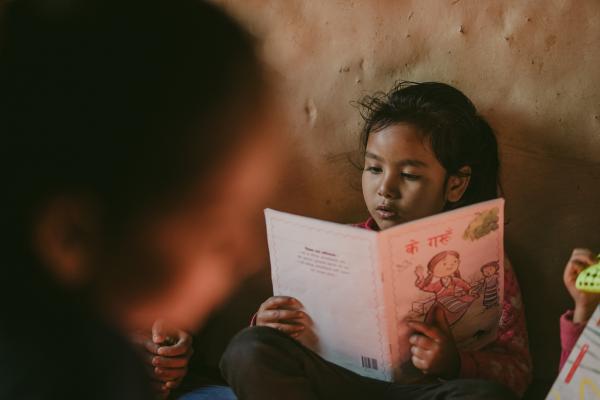
VSO donated books and Sonu started holding classes on Saturday mornings for preschool-age children and children who had dropped out of school. She assists with the children's reading and even gives classes on hygiene and sanitation, sharing what she has learned through the Sisters for Sisters project with the wider community.
Together, Laxmi and Sonu have led campaigns in the community against early marriage and to encourage families to let girls attend school. In 2017, Sonu received a ‘Top 10 Unsung Hero’ award from Nepal's Ministry of Women, Children and Social Welfare for her contribution to reducing the drop-out rate from at school in Karekhola.
“My Big Sister is my role model. Mentoring made me strong, bold and feel mature. Working with Laxmi was the turning point in my life.”
Thank you for making all of this possible. With your support, we can help more girls access the education they need to create a brighter future.
Read more

The two volunteers empowering girls and young women in Mozambique
Nelma and Carmirene and are two volunteers working on VSO's EAGLE project in Mozambique. For Nelma and Carmirene, education is not just about school, it is about meeting people where they are and using the right tools to challenging harmful norms. Here are their stories.

A ripple of change: how VSO volunteers are transforming communities
Every act of volunteering begins with a choice — a decision to act out of a desire to make a difference. Across the world, VSO volunteers are proving that one spark of action can ignite something much bigger.
Opening doors to safety, education, and a brighter future
For girls in Karamoja, the poorest region in Uganda, being forced into early motherhood is all too common. This Christmas, you can open the doors to Safety, Education, and a Brighter Future.
